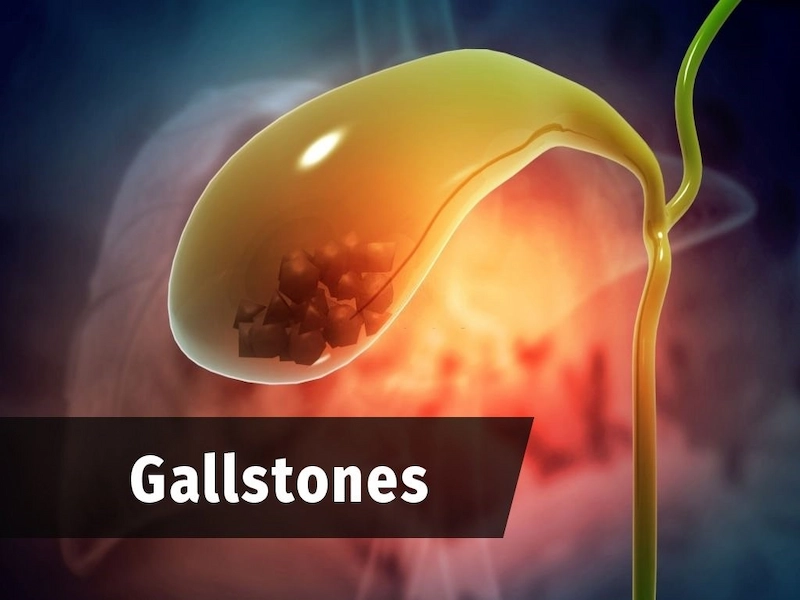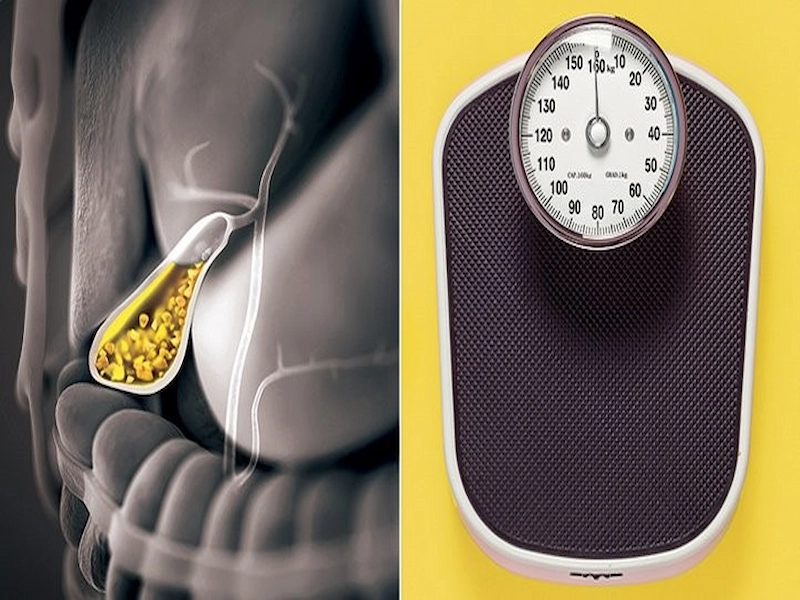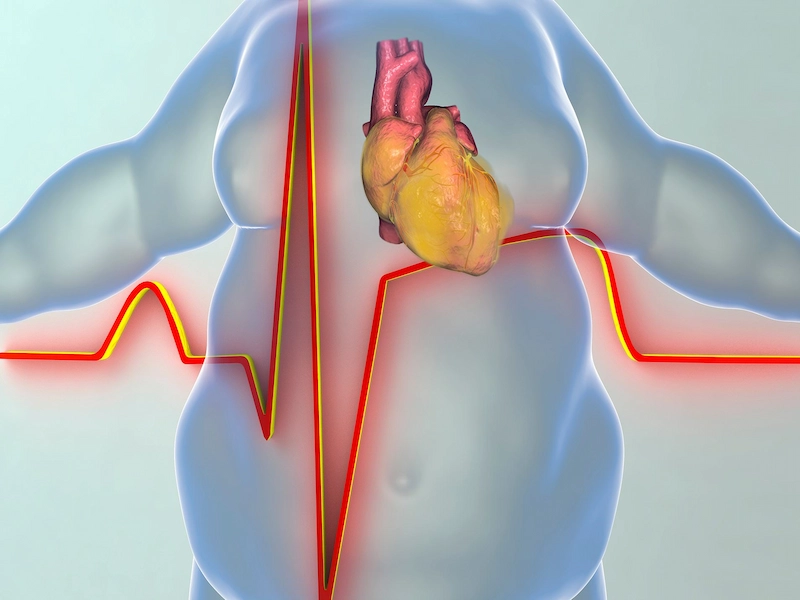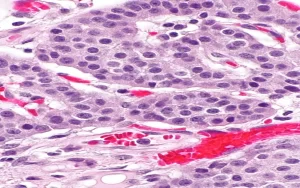up to one fifth of adults are diagnosed with gallstones worldwide. Gallstones alone do not require treatment, as most people with gallstones are asymptomatic. However, approximately 25% of people diagnosed with gallstones have symptoms or complications and need to undergo cholecystectomy (laparoscopic gallbladder removal) for treatment.
Studies show that gallstones formation is related to obesity and even rapid weight loss. This article discusses the relationship between obesity and gallstones and provides the correct weight loss strategies to combat this problem.

What are gallstones?
Gallstones are rock-hard deposits that develop in the gallbladder, a small organ in the upper right abdomen just below the liver.
Gallstones can be so small they’re barely visible, or as large as a golf ball. They can exist singly or by the hundreds. And they can be asymptomatic or unbearably painful.
Gallstones are formed when bile, which helps digest fat and is produced in the liver, has too much cholesterol or bilirubin and not enough bile acids or lecithin (a substance that allows fat to mix with water). Cholesterol gallstones are the most common type of gallstones, but gallstones made of bilirubin (called pigment gallstones) are also prevalent.
Gallstones are classified based on their location (gallbladder or bile ducts) and their composition. Approximately 90% of gallstones are cholesterol stones, which are mainly composed of cholesterol. The remaining 10% consists of black and brown pigment stones, which are mainly composed of calcium bilirubinate, calcium complexes, and mucin glycoproteins or unconjugated bilirubin, respectively.
Read more: All about weight loss surgery
Causes of gallstones formation
Although the formation of these stones is related to genetic factors, there are some risk factors for the formation of gallstones that can be modified in order to prevent stones. High weight, metabolic abnormalities including obesity, hyperinsulinemia, insulin resistance and diabetes, or lack of physical activity and eating high-calorie foods, including increased consumption of refined carbohydrates and saturated fats, are risk factors for gallstones formation. In addition, certain medications, such as estrogen and progesterone, can predispose a person to developing stones.
Experts and researchers believe that obesity can lead to gallstones because it changes the balance of cholesterol with lecithin and bile acids in the gallbladder. Excess body weight also makes it more difficult for the gallbladder to empty, which allows cholesterol-rich bile to remain in the gallbladder and form stones.
Safe way of weight loss to reduce your risk of gallstones
Losing weight is a surefire way to reduce your risk of developing gallstones. Most experts agree that slow and steady weight loss is preferable to strict diets for stone treatment. Rapid weight loss, 1.5 kg or more per week, can cause gallstones in a similar way to obesity; That is, it changes the balance of cholesterol, lecithin and bile acids and prevents the proper drainage of the gallbladder.
People who have had bariatric surgery are at a higher risk of developing gallstones than anyone else because they lose significant weight in the first three to six months. The type of weight loss surgery doesn’t matter either, because it’s the rapid weight loss that causes stones, not the surgery itself.
Gallbladder stones are so common after weight loss surgery that most patients are given ursodiol, a medication which prevents the formation of stones by reducing the production of cholesterol and dissolving it in the bile, at the first place.
Weight loss of half a kilo to a kilo per week is a good goal for most people. Moderate weight loss not only helps prevent gallstones, but also creates good eating habits that prevent weight gain and stone formation. Frequent ups and downs of your weight is an important factor for the formation of gallstones.
When it comes to preventing gallstones, the type of food you eat doesn’t really matter. The important thing is to avoid eating too much. Very low-fat diets are not a good choice because they inhibit gallbladder contractions, making it harder to empty the gallbladder, allowing bile to build up instead of being released into the small intestine and form stones after combining with calcium.

Correct weight loss strategies to prevent gallstones
First of all, it is better to see a nutritionist to prescribe a suitable diet based on your physical condition. At the same time, the following solutions can help to lose weight properly.
- Plan your meals in advance, especially when eating out.
- Keep a food journal. People who log everything they eat within 15 minutes of eating lose more weight than those who don’t keep a journal. Some software also can help you with this.
- Make a list of your favorite low-calorie foods and try to always have some of them at home and at work.
- Eat only until you are satisfied. If you eat slowly and consciously, you’re less likely to overeat because it takes about 15 to 20 minutes for your brain to tell you that you’re full.
- If the foods consumed are high in fat, reduce the cooking oil, but remember not to eliminate it.
- Try to stop doing other things while eating. For example, don’t watch TV or talk on the phone. These things make you eat more.
- Use salad and vegetables with food.
- Avoid pickles and things that increase your appetite as much as possible.
- Refer to a nutritionist familiar with Temperament (a key concept in Iranian traditional medicine) or a traditional medicine specialist to adjust your Temperament.
Get help from the best slimming specialist in Tehran for advice in this field.
Conclusion
Gallstones are rock-hard deposits that develop in the gallbladder or its ducts and may cause inflammation and prevent the outflow of bile, thereby causing pain and various problems. In this situation, it is necessary to remove the gallbladder. Gallstones have a lot to do with obesity. In addition, rapid weight loss also causes the formation of these stones for the same reasons as obesity. The best way to prevent the formation of gallstones is to control weight and reduce it gently. Weight loss should not exceed one kilogram per week. Also, fat should not be removed from food.



